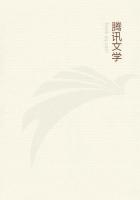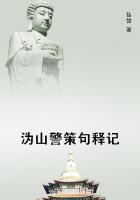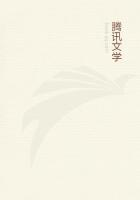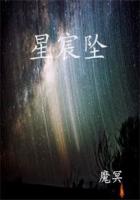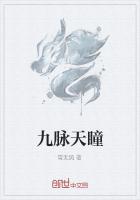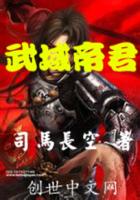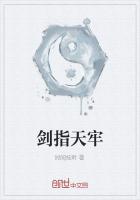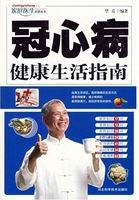IN the previous chapter I have dwelt on some of the lighter conditions of our life at this time; I must now turn to it in a less frivolous aspect. As my tenth year advanced, the development of my character gave my Father, I will not say anxiety, but matter for serious reflection. My intelligence was now perceived to be taking a sudden start; visitors drew my Father's attention to the fact that I was 'coming out so much'. I grew rapidly in stature, having been a little shrimp of a thing up to that time, and I no longer appeared much younger than my years. Looking back, I do not think that there was any sudden mental development, but that the change was mainly a social one. I had been reserved, timid and taciturn; I had disliked the company of strangers. But with my tenth year, I certainly unfolded, so far as to become sociable and talkative, and perhaps I struck those around me as grown 'clever', because I said the things which Ihad previously only thought. There was a change, no doubt, yet Ibelieve that it was mainly physical, rather than mental. My excessive fragility--or apparent fragility, for I must have been always wiry--decreased; I slept better, and therefore, grew less nervous; I ate better, and therefore put on flesh. If I preserved a delicate look--people still used to say in my presence, 'That dear child is not long for this world!'- it was in consequence of a sort of habit into which my body had grown; it was a transparency which did not speak of what was in store for me, but of what I had already passed through.
The increased activity of my intellectual system now showed itself in what I behove to be a very healthy form, direct imitation. The rage for what is called 'originality' is pushed to such a length in these days that even children are not considered promising, unless they attempt things preposterous and unparalleled. From his earliest hour, the ambitious person is told that to make a road where none has walked before, to do easily what it is impossible for others to do at all, to create new forms of thought and expression, are the only recipes for genius; and in trying to escape on all sides from every resemblance to his predecessors, he adopts at once an air of eccentricity and pretentiousness. This continues to be the accepted view of originality; but, in spite of this conventional opinion, I hold that the healthy sign of an activity of mind in early youth is not to be striving after unheard-of miracles, but to imitate closely and carefully what is being said and done in the vicinity. The child of a great sculptor will hang about the studio, and will try to hammer a head out of a waste piece of marble with a nail; it does not follow that he too will be a sculptor. The child of a politician will sit in committee with a row of empty chairs, and will harangue an imaginary senate from behind the curtains. I, the son of a man who looked through a microscope and painted what he saw there, would fair observe for myself, and paint my observations. It did not follow, alas! that I was built to be a miniature-painter or a savant, but the activity of a childish intelligence was shown by my desire to copy the results of such energy as I saw nearest at hand.
In the secular direction, this now took the form of my preparing little monographs on seaside creatures, which were arranged, tabulated and divided as exactly as possible on the pattern of those which my Father was composing for his Actinologia Britannica. I wrote these out upon sheets of paper of the same size as his printed page, and I adorned them with water-colour plates, meant to emulate his precise and exquisite illustrations.
One or two of these ludicrous pastiches are still preserved, and in glancing at them now I wonder, not at any skill that they possess, but at the perseverance and the patience, the evidence of close and persistent labour. I was not set to these tasks by my Father, who, in fact, did not much approve of them. He was touched, too, with the 'originality' heresy, and exhorted me not to copy him, but to go out into the garden or the shore and describe something new, in a new way. That was quite impossible;I possessed no initiative. But I can now well understand why my Father, very indulgently and good-temperedly, deprecated these exercises of mine. They took up, and, as he might well think, wasted, an enormous quantity of time; and they were, moreover, parodies, rather than imitations, of his writings, for I invented new species, with sapphire spots and crimson tentacles and amber bands, which were close enough to his real species to be disconcerting. He came from conscientiously shepherding the flocks of ocean, and I do not wonder that my ring-straked, speckled and spotted varieties put him out of countenance. If Ihad not been so innocent and solemn, he might have fancied I was mocking him.
These extraordinary excursions into science, falsely so called, occupied a large part of my time. There was a little spare room at the back of our house, dedicated to lumber and to empty portmanteaux. There was a table in it already, and I added a stool; this cheerless apartment now became my study. I spent so many hours here, in solitude and without making a sound, that my Father's curiosity, if not his suspicion, was occasionally aroused, and he would make a sudden raid on me. I was always discovered, doubled up over the table, with my pen and ink, or else my box of colours and tumbler of turbid water by my hand, working away like a Chinese student shut up in his matriculating box.

